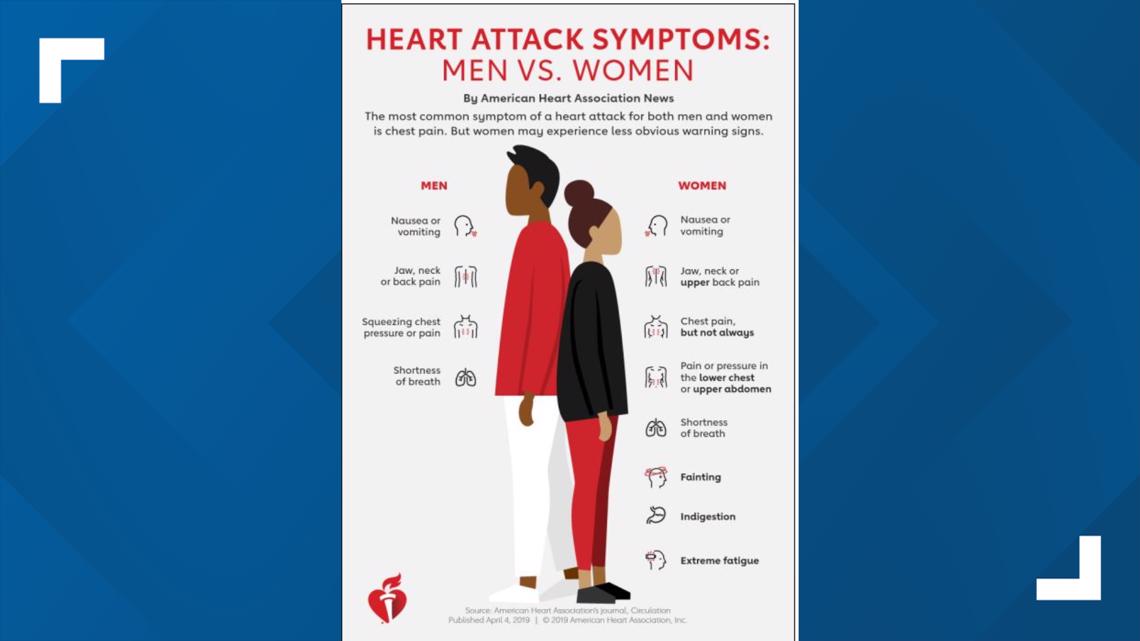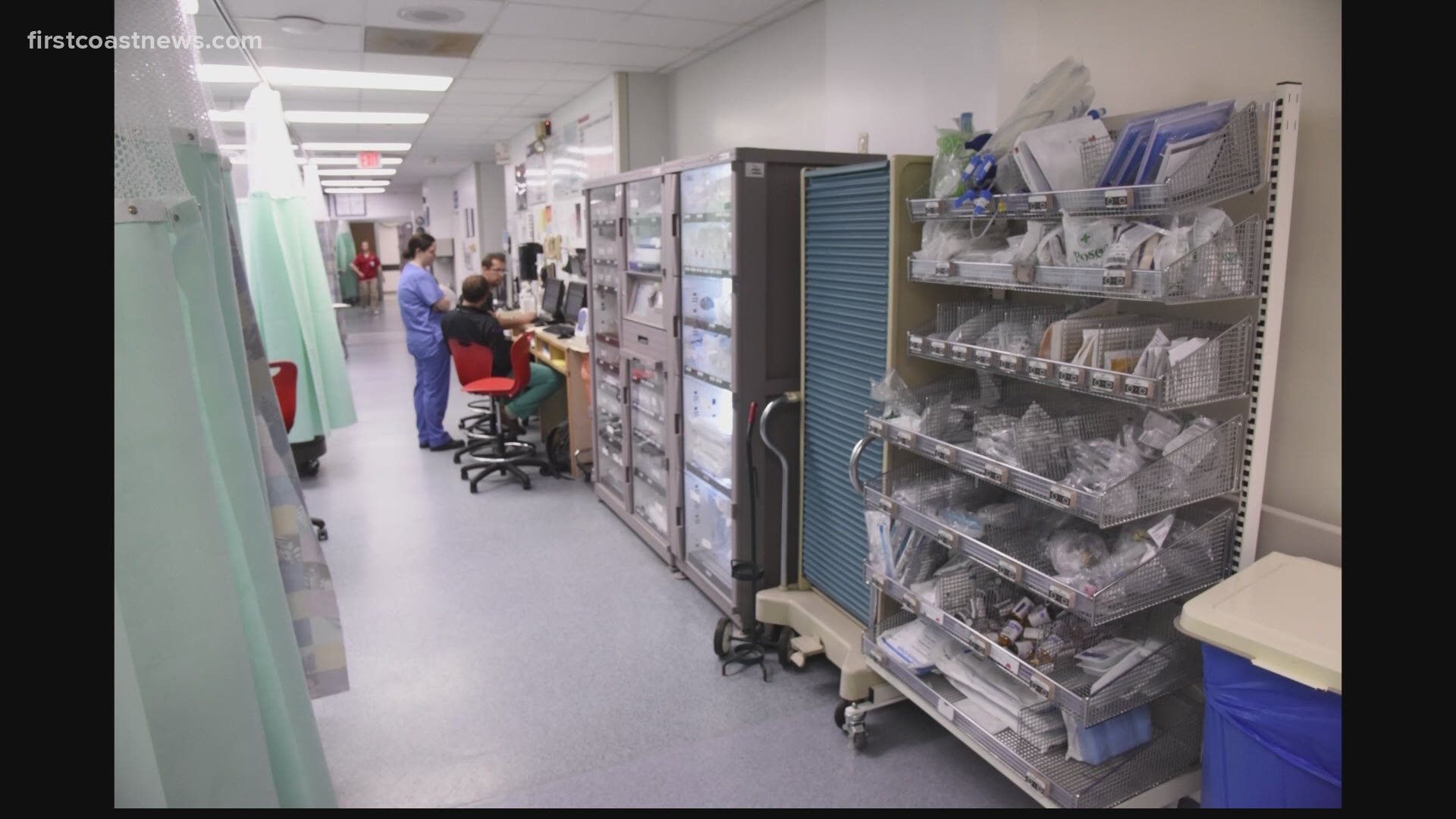JACKSONVILLE, Fla — Emergency rooms across the First Coast are seeing a decline in patients in large part due to people being scared they will be exposed to the coronavirus. UF Health Jacksonville said its volume is down 40% since the pandemic started and nationally volumes are down anywhere from 30-50% across the board apart from the hot spots.
"People are fearful of coming to the emergency department because they're concerned about being exposed to COVID-19 and patients are delaying care that's very time-sensitive, such as heart attacks or strokes," Dr. Brian Yorkgitis, an assistant professor of surgery UF Health explained. "Those things don't go away when we're fighting the COVID crisis right now."
He said he has seen patients with ruptured appendicitis because they waited more than a day to go to the ER, and for those patients and anyone exhibiting signs of a stroke or heart attack the longer you wait, the more dire the consequences.
"All the hospitals are really taking care to separate those COVID patients, particularly patients that come by ambulance," Dr. Yorkgitis said. "In the report, the ambulance gives prior to arrival they're COVID screened in most hospitals, so they've asked questions that would give us suspicion of COVID, and they would enter a separate part of the emergency department to keep people away and separated to prevent that cross-contamination and that fear."
Dr. Nima Aghaebrahim, an interventional neurologist with Lyerly Neurosurgery at Baptist Health, said it's very important to get immediate medical attention if you have signs of a stroke.
"Every minute that passes, millions of brain cells die," Dr. Aghaebrahim said. "It's very important to know that stroke is an emergency. If people have signs or symptoms of a stroke which are facial droop, arm weakness, the inability to speak, they need to act very fast ... They need to call 911 and seek attention."
And when it comes to heart attack symptoms, while chest pain is the most common, jaw, neck and back pain are also signs along with indigestion and extreme fatigue.
Dr. Yorkgitis and Dr. Aghaebrahim both say the bottom line is if you are having a medical emergency, don't delay in getting to the hospital.



